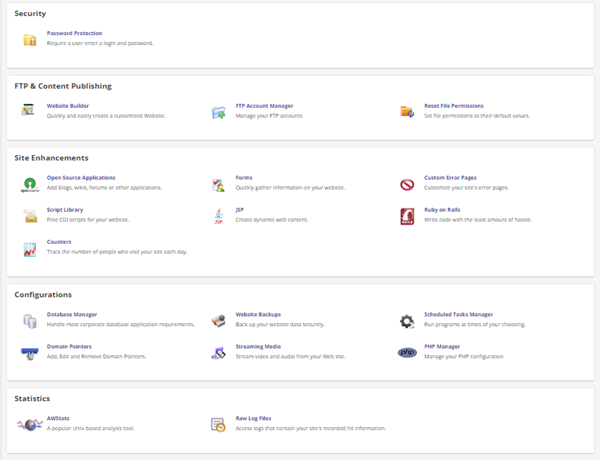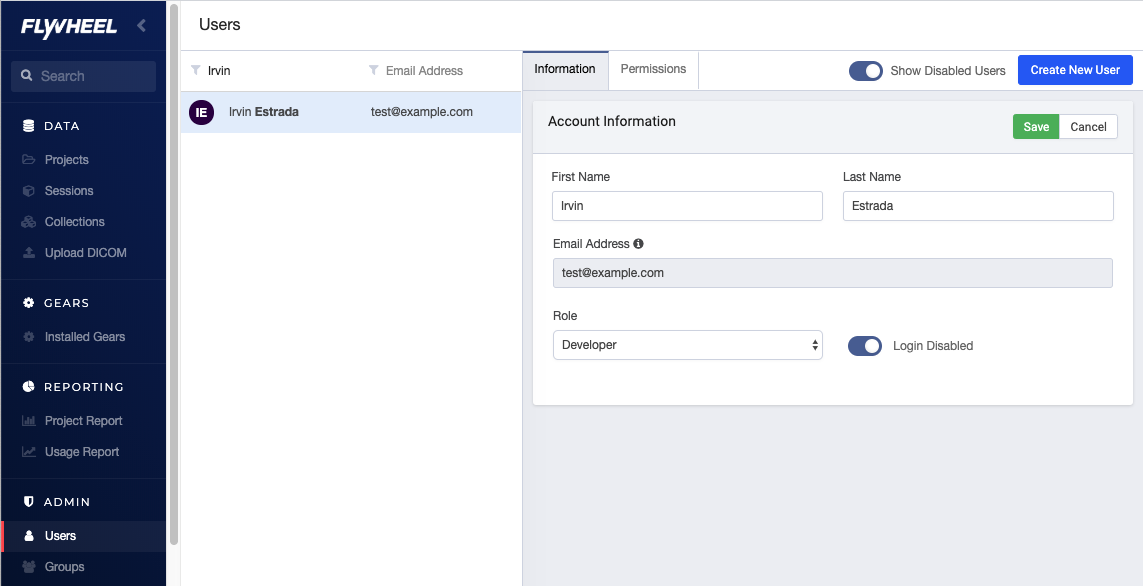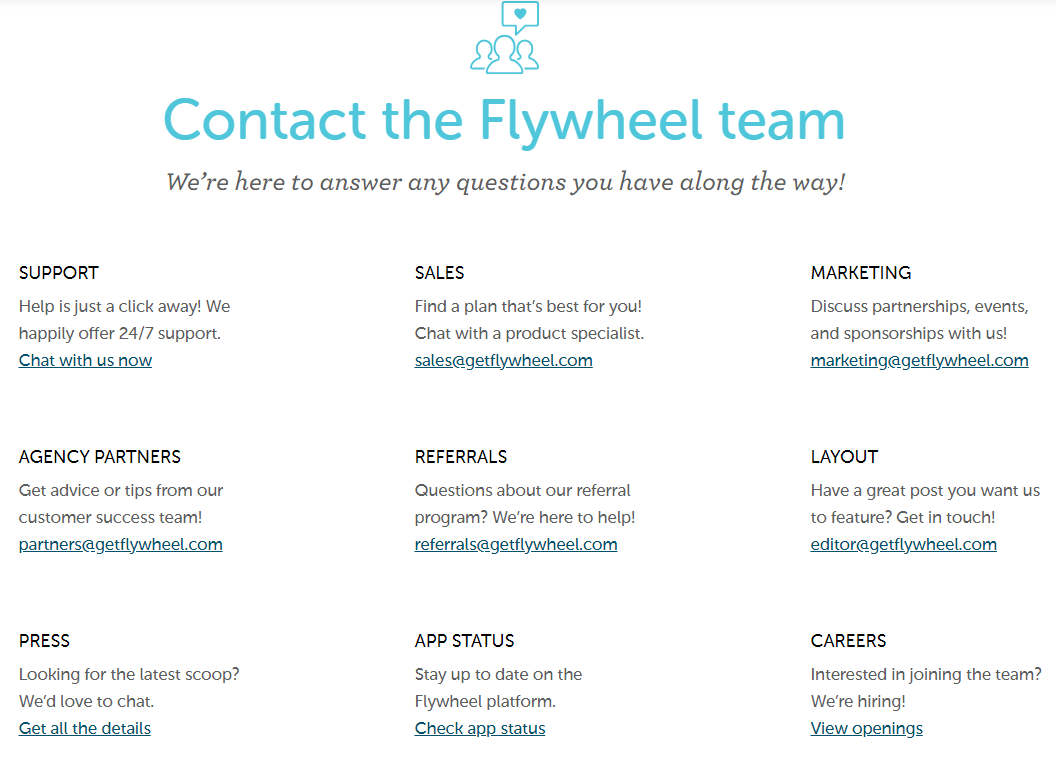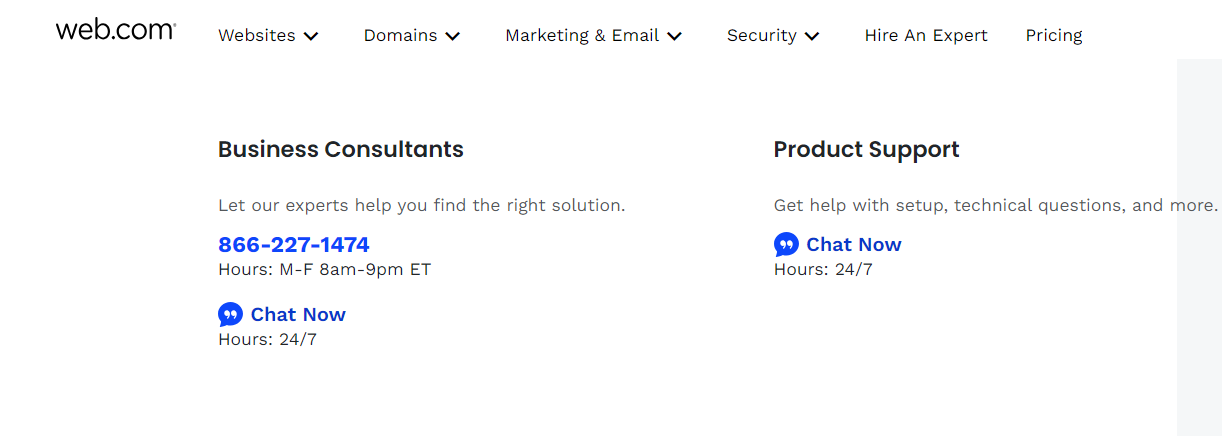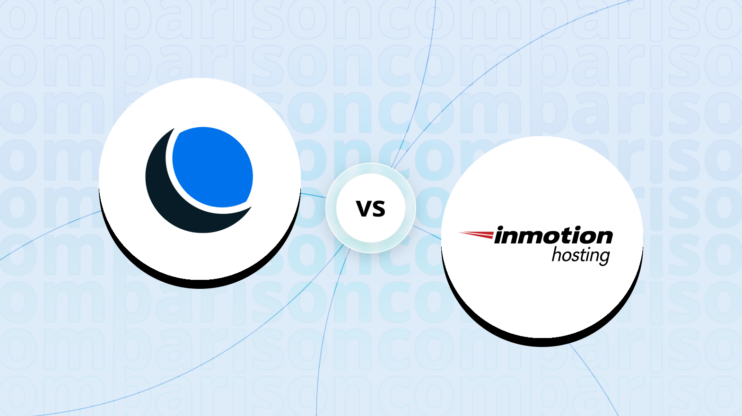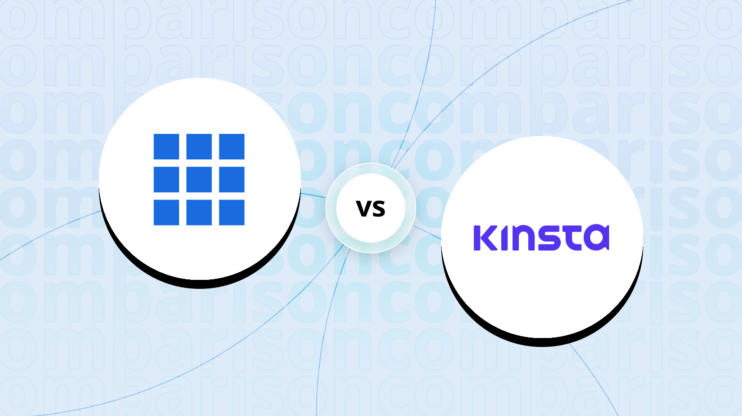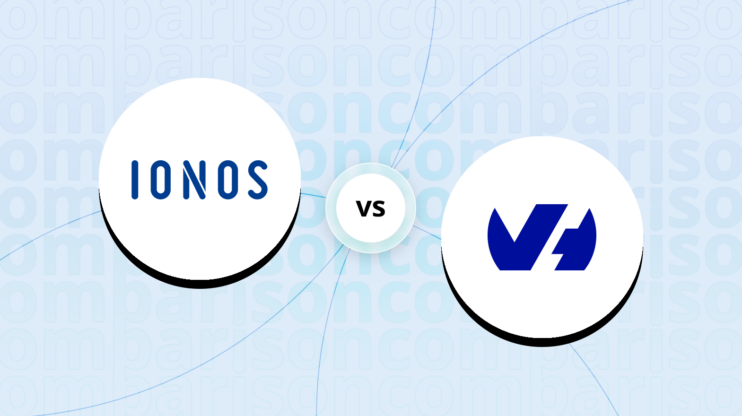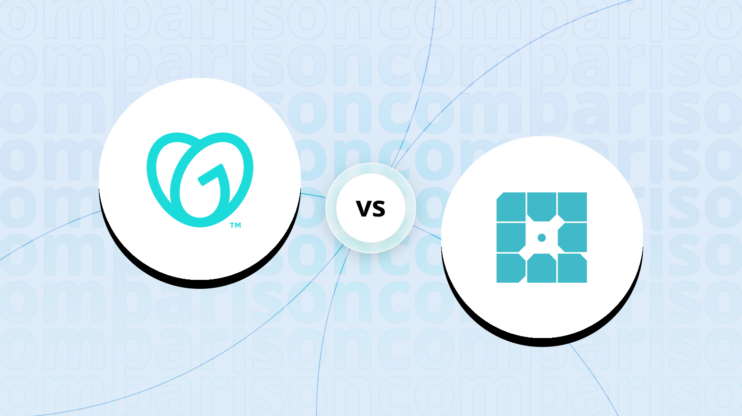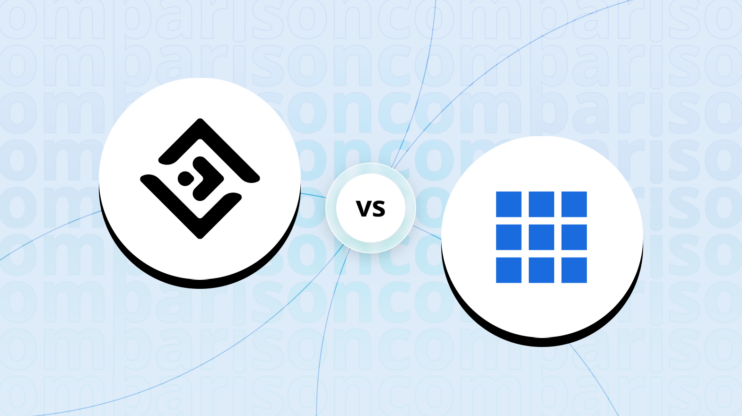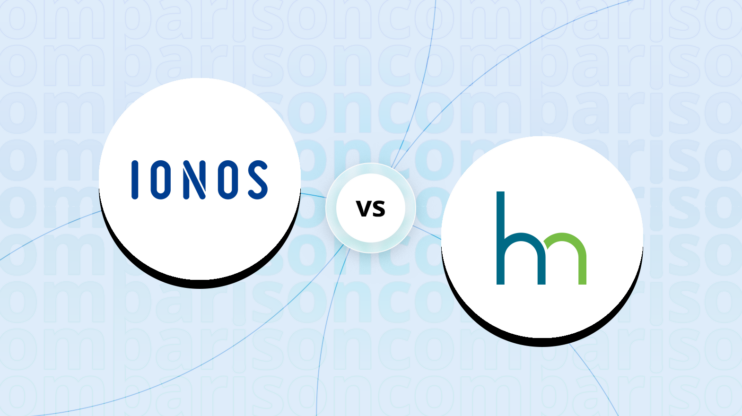Flywheel vs Web.com: Final verdict
Looking over Flywheel vs. Web.com, it’s clear why both hosts are so popular. They have both hosted millions of
websites that run on WordPress for decades, building up a loyal customer base.
-
Flywheel (Overall grade: 8.4)
is highly regarded for its exceptional website speed, impeccable uptime, and comprehensive security features. Its specialized focus on WordPress makes it a preferred option for agencies and professionals managing multiple client sites. The platform’s integration of tools like FlyCache and Genesis Framework, along with custom plans for high-traffic websites, sets it apart. However, Flywheel does not offer in-built email hosting, which might require users to find third-party solutions for email services.
Web.com (Overall grade: 7.3)
provides a well-rounded, user-friendly hosting solution suitable for small businesses and individuals seeking an all-in-one package. It includes features like a free domain, business email hosting, and a drag-and-drop website builder, making it accessible for users less familiar with technical aspects. Though Web.com offers competitive pricing and unmetered bandwidth, its uptime and server response metrics fall short compared to Flywheel. It also lacks some advanced WordPress-specific enhancements and enterprise-level support options, making it less ideal for high-demand users.
 Overall grade:8.4 |
 Overall grade:7.3 |
|
|---|---|---|
| Uptime and Availability | 9.7 | 8.0 |
| Hosting Performance | 8.2 | 6.6 |
| Hosting Security | 9.4 | 8.2 |
| Price | 8.1 | 8.0 |
| Hosting Features | 6.8 | 4.8 |
| Ease Of Setup | 8.9 | 7.6 |
| User Management | 7.8 | 7.3 |
| Customer Support | 8.5 | 8.2 |
| User feedback | 4.4/5 | 4.0 out of 5/5 |
Hosting types offered
Both platforms provide a variety of hosting types, each designed to meet the different needs of users.
 |
 |
|
|---|---|---|
| Shared hosting | ||
| Cloud hosting | ||
| WordPress hosting | ||
| Ecommerce hosting | ||
| VPS hosting | ||
| Dedicated hosting |
Although both offer a variety of hosting plans tailored to different needs, in
certain cases, one platform may prove to be more suitable.
Detailed comparison
Uptime and availability
Evaluates the average uptime statistics, uptime guarantee and overall availability of the hosting
provider
Score Components:
- Uptime percentage (30%): evaluates the uptime statistics in given period of time
- Uptime guarantee (20%): Assesses if the platform offers an uptime guarantee and
whether the actual uptime matches the promised guarantee. - General performance (25%): Evaluates how fast is the average response time and overall
it’s stability. - Responsiveness (10%): Adaptability to different devices and screen sizes.
- Availability (25%): Reflects the total downtime and number of outages.
 9.7
9.7
 8.0
8.0
🏆 Winner Flywheel: Flywheel: A hosting provider that excels in uptime, availability, and customer support.

Flywheel boasts an impressive 100% uptime over a monitored two-week period, surpassing their 99.9% SLA guarantee. Their average response time of 371ms is significantly faster than the market average, making them a reliable choice. Their 24/7/365 support ensures customers can get help anytime, with options for chat, email tickets, and phone support.
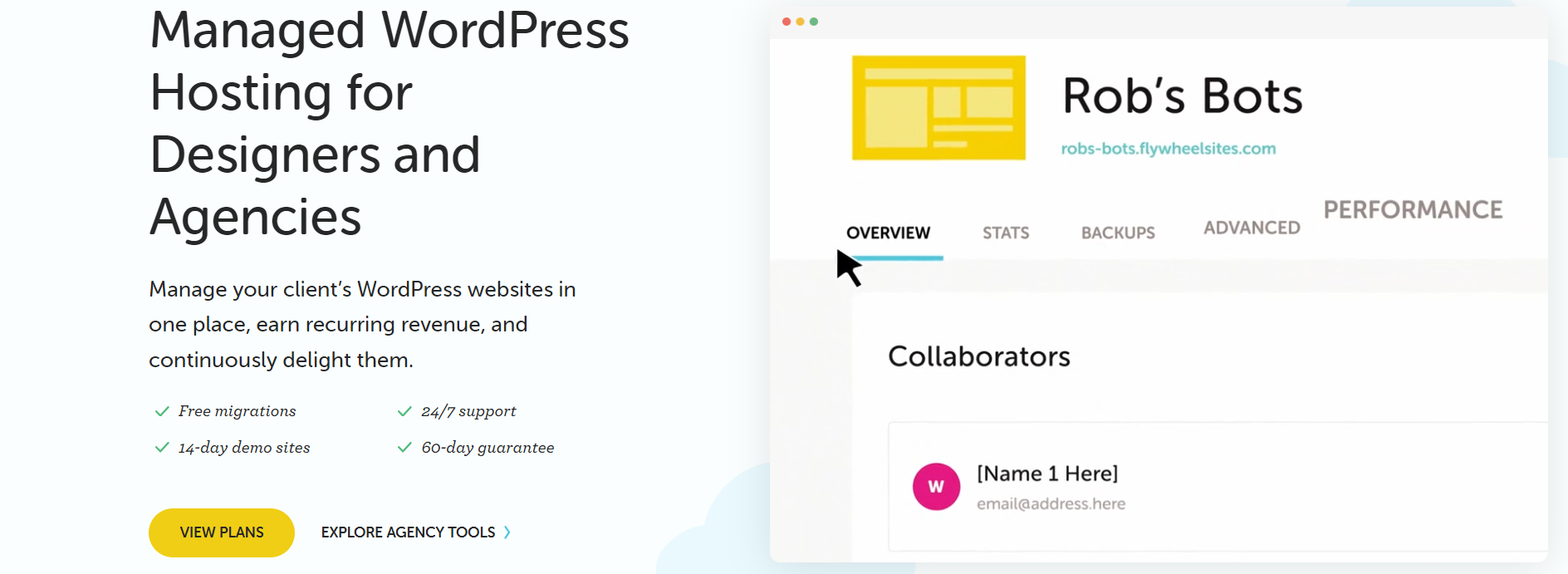
Web.com offers a dependable 99.9% uptime guarantee, but actual performance shows an uptime of 99.83% over a month, with some downtimes. Their server response times claim improvements of up to 70%, yet they offer substantial features like unmetered bandwidth, SSL security, and automatic nightly backups. Despite the rich feature set, Web.com’s uptime and response time metrics make Flywheel the superior choice.
Which one has better hosting performance?
Score Components:
- Hosting speed (30%): This includes SSD quality, Load times, PageSpeed score ranges,
additional information on website speed, built-in plugins for performance enhancement, available caching
methods, and CPU/RAM options - CDN (20%): Considers whether CDN is available or not, whether it’s free or paid, and
the quality of the CDN service - Available data centers (30%): Evaluates the number of data centers and their locations
globally. - Scalibility (20%): Looks at whether elastic scaling is available, the process required
to scale (manual upgrade vs. automatic scaling), the presence of dedicated servers, and the costs
associated with scaling.
 8.2
8.2
 6.6
6.6
🏆 Winner Flywheel: Speeds up WordPress sites with top-notch cloud hosting and dedicated resources.
Flywheel and Web.com are both solid choices for hosting, but Flywheel edges out its competitor with more performance-centric features. Flywheel’s cloud platform is specifically designed for WordPress sites, utilizing server-level caching and a top-tier CDN powered by Fastly to ensure optimal speeds. On the other hand, Web.com boasts server response times that are up to 70% faster and uses the upgraded PHP 8.0 for quick content display. However, it lacks Flywheel’s specialized WordPress optimizations. Flywheel’s dedicated resources and FlyCache technology further boost performance, whereas Web.com relies on general unmetered bandwidth and improved storage systems but without dedicated servers. Both offer a 99.9% uptime guarantee.
Website speed
Flywheel excels in website speed through its managed caching at the server level and the inclusion of a powerful CDN via Fastly. This setup eliminates the need for additional speed-enhancing plugins. In contrast, Web.com also offers quick server responses and faster content delivery with upgrades like OPcode Cache and MySQL 8, but these benefits are more generic compared to Flywheel’s WordPress-specific enhancements. Flywheel’s auto-healing technology also adds another layer of reliability for uninterrupted speed.
Scalability
Flywheel ensures easy scalability with custom plans for high-traffic sites, compute-optimized dedicated servers for WooCommerce, and dedicated account support, but the costs for extra resources are $1 per 1,000 visitors and $1 per GB of storage. Web.com supports more than 99.5% of customers’ bandwidth needs and offers scalable solutions for those outgrowing shared architecture, yet details on elastic scaling and dedicated servers are not specified. This makes Flywheel a more transparent choice for growth-focused sites.
Which one has better security features?
and regulatory requirements
Score Components:
- Technical security measures (40%): This includes encryption, firewalls, DDoS
protection, secure configurations, server monitoring, access control and availability of security addons
(e.g Sitelock security). - Operational security measures (30%): Encompasses data privacy, backups and data
redundancy. - Compliance and certifications (20%): Adherence to legal and regulatory requirements
(e.g., GDPR, HIPAA) and possession of certifications (e.g., ISO 27001, SOC 2). - Business and reliability (10%): Factors in the provider’s reputation, uptime
guarantees, and customer support.
 9.4
9.4
 8.2
8.2
🏆 Winner
Flywheel: Offers top-notch security and compliance, making it a preferred hosting solution for sensitive data.
Both Flywheel and Web.com have notable differences in their approaches to technical and operational
security, as well as in their compliance with regulations.
Technical security measures:
Flywheel provides free SSL certificates and supports third-party SSLs, ensuring secure data transmission. It supports PHP 8.1, allowing compatibility with the latest PHP features. Flywheel uses Fastly WAF for detecting malicious traffic and offers intelligent IP blocking. Additionally, it provides nightly backups and plugin security alerts. Web.com offers multiple SSL certificate types, including Extended Validation SSL for the highest security level. It supports PHP 8.0 and employs SiteLock solutions for malware scanning and removal, CDN, and OPcode caching.
Operational security measures:
Flywheel excels in operational security with features like free malware removal by their Happiness Engineers and auto-healing technology for WordPress sites. It also provides 24/7/365 support and free site migrations. Web.com offers SiteLock security solutions for malware scanning and automated backups via CodeGuard, ensuring constant data safety. It guarantees 99.9% uptime and unmetered bandwidth for handling traffic spikes.
Compliance and certifications:
Flywheel is SOC 2 audited and compliant with HIPAA, GDPR, 21 CFR Part 11, and GCP, making it suitable for highly regulated industries. Web.com ensures GDPR compliance but does not specify HIPAA or 21 CFR Part 11. Web.com does adhere to PCI compliance through SiteLock.
 |
 |
|
|---|---|---|
SSL certificate |
Free SSL, Third-Party SSLs |
Various types (Essential, Premium, Wildcard, Extended Validation, UCC) |
Additional security features |
Fastly WAF, Intelligent IP blocking, Free malware removal, Auto-healing technology |
SiteLock (malware scanning and removal, CDN), CodeGuard backups |
PHP versions |
PHP 8.1 |
PHP 8.0 |
GDPR compliance |
Yes |
Yes |
HIPAA compliance |
Yes |
Not specified |
PCI compliance |
Not specified |
Yes |
Hosting features
Score Components:
- Domains (20%): Assesses the availability of a free domain, domain purchase options, and
pricing - Email (15%): Considers if the provider offers full email hosting, or is reselling
third-party service, and if the email is only transactional or not - Website builder (15%): Checks if website builder is available, and it’s user
friendliness and overall the level of customization allowed. - Staging environment (20%): Determines if a staging environment is available, allowing
for testing changes before going live. - FTP & SFTP accounts (10%): Evaluates if and how easily users can access FTP and
SFTP accounts - Git and SSH access (20%): Assess whether Git is integrated into the hosting service and
if SSH access is provided
 6.8
6.8
 4.8
4.8
🏆 Winner
Flywheel: Excellence in managed WordPress hosting with robust features.
Flywheel and Web.com both offer a variety of features catering to different user needs, but the approach and depth of these features vary greatly. Flywheel emphasizes a managed WordPress hosting experience with extensive tools for developers, such as a local development environment and staging sites, creating a smooth workflow for complex projects. They provide free migrations and 24/7 support, which are critical for users prioritizing seamless transitions and continuous assistance. Web.com, on the other hand, focuses on user-friendliness with an included drag-and-drop website builder ideal for those seeking simplicity. Web.com also offers unmetered bandwidth across its plans, making it a suitable choice for websites with variable traffic demands.
A unique selling point for Flywheel is the availability of advanced development tools and managed services such as FlyCache and the Genesis Framework, which are particularly beneficial for developers and agencies managing multiple WordPress sites. Conversely, Web.com offers a free domain and business email for the first year, appealing to small businesses and individuals who need an all-in-one solution to get their website up and running quickly. Flywheel’s lack of email hosting means users will need to seek third-party solutions, which could be a consideration for some. Each provider has its strengths; Flywheel is tailored for power users and agencies, while Web.com offers simplicity and essential services for new website owners.
 |
 |
|
|---|---|---|
Free domain |
No |
Yes, for the first year |
Free SSL |
Yes |
Yes, for the first year |
Email hosting |
No |
Yes |
Website builder |
No |
Yes |
Staging environment |
Yes |
No |
FTP & SFTP accounts |
Yes |
Yes |
Git and SSH access |
Yes |
No |
Free backup |
Yes |
No |
Money back guarantee |
Yes, first 30-60 days (varies) |
No |
Both providers support a range of users from beginners to experts with user-friendly website builders and WordPress staging areas. However, in terms of developer tools, both Flywheel and Web.com offer robust options including SSH access, support for multiple programming languages, and Git for version control, thus appealing to developers looking for advanced capabilities.
Email services:
Flywheel does not offer in-built email hosting services, recommending third-party providers such as Google Workspace. This could be a limitation for users wanting an integrated solution. Web.com provides business email hosting, including transactional email capabilities, making it easier for users to manage email communications directly. For businesses needing robust email marketing and transactional emailing, Web.com’s integrated email hosting can be a more seamless option.
Price
Score Components:
- Plan value (40%): What each pricing tier offers.
- Transparency and clarity (30%): Clearness of pricing structures.
- Flexibility of plans (20%): Range of options to suit different budgets.
- Hidden costs (10%): Additional expenses not included in the plan.
 8.1
8.1
 8.0
8.0
🏆 Winner Flywheel: Flywheel scores slightly higher overall, mainly due to the robust features included in their plans and the transparency of what’s included.
Evaluating the pricing of plans among various hosting providers can be complex due to their differing pricing and renewal strategies. Additionally, certain plans require annual commitments, which adds to the difficulty of making comparisons. The prices listed are based on monthly commitments; plans requiring annual commitments are indicated. Additionally, although some providers offer identical plans for WordPress and shared hosting, we have created separate tables for each to enhance clarity.
When comparing the pricing plans between Flywheel and Web.com, Flywheel provides a range of WordPress-specific plans that scale up to meet various needs, including features such as nightly backups, 24/7 chat support, and free migrations. On the other hand, Web.com offers more generalized hosting plans that often come at a lower entry-level price, especially for the first year, but with higher renewal rates. Web.com includes features like a free domain for the first year and a drag-and-drop website builder across its shared hosting plans. Flywheel stands out in its capability to handle higher traffic volumes and multiple sites, suitable for freelancers and agencies, while Web.com provides basic, plus, and premium options that are more cost-effective for small businesses or individual users on a budget.
 |
 |
|---|---|
|
Tiny Plan $13/month
1 WordPress site, 5GB storage, 20GB bandwidth, 5,000 monthly visits, 24/7 support, free migrations. Value for price:7.5
|
Basic WordPress Plan $9.99/month
1 website, 10GB storage, unmetered bandwidth, 15,000 monthly visits, 24/7 support, free domain*, business email. Value for price:8.0
|
|
Starter Plan $25/month
1 WordPress site, 10GB storage, 50GB bandwidth, 25,000 monthly visits, 24/7 support, free migrations. Value for price:8.1
|
Plus WordPress Plan $13.99/month
5 websites, 20GB storage, unmetered bandwidth, 50,000 monthly visits, 24/7 support, free domain*, SSL certificate, business email. Value for price:8.2
|
|
Freelance Plan $96/month
Up to 10 sites, 20GB storage, 200GB bandwidth, 100,000 monthly visits, 24/7 support, free migrations. Value for price:8.6
|
Premium WordPress Plan $16.99/month
10 websites, 40GB storage, unmetered bandwidth, 200,000 monthly visits, 24/7 support, free domain*, SSL certificate, business email. Value for price:8.3
|
|
Agency Plan $242/month
Up to 30 sites, 50GB storage, 500GB bandwidth, 400,000 monthly visits, 24/7 support, free migrations. Value for price:8.8
|
N/A |
|
Custom Plan Custom pricing
30+ sites, custom storage, custom bandwidth, millions+ monthly visits, 24/7 support, free migrations. Value for price:9.0
|
N/A |
 |
 |
|---|---|
|
Tiny Plan $13/month
1 WordPress site, 5GB storage, 20GB bandwidth, 5,000 monthly visits, 24/7 support, free migrations. Value for price:7.5
|
Basic Plan $9.99/month
1 website, 10GB storage, unmetered bandwidth, 15,000 visitors, 24/7 support, free domain*, drag-and-drop website builder, business email. Value for price:8.1
|
|
Starter Plan $25/month
1 WordPress site, 10GB storage, 50GB bandwidth, 25,000 monthly visits, 24/7 support, free migrations. Value for price:8.1
|
Plus Plan $13.99/month
5 websites, 20GB storage, unmetered bandwidth, 50,000 visitors, 24/7 support, free domain*, SSL certificate, drag-and-drop website builder, business email. Value for price:8.3
|
|
Freelance Plan $96/month
Up to 10 sites, 20GB storage, 200GB bandwidth, 100,000 monthly visits, 24/7 support, free migrations. Value for price:8.6
|
Premium Plan $16.99/month
10 websites, 40GB storage, unmetered bandwidth, 200,000 visitors, 24/7 support, free domain*, SSL certificate, drag-and-drop website builder, business email. Value for price:8.3
|
|
Agency Plan $242/month
Up to 30 sites, 50GB storage, 500GB bandwidth, 400,000 monthly visits, 24/7 support, free migrations. Value for price:8.8
|
N/A |
|
Custom Plan Custom pricing
30+ sites, custom storage, custom bandwidth, millions+ monthly visits, 24/7 support, free migrations. Value for price:9.0
|
N/A |
 |
 |
||||||||||||||||||||||||||||||||
|---|---|---|---|---|---|---|---|---|---|---|---|---|---|---|---|---|---|---|---|---|---|---|---|---|---|---|---|---|---|---|---|---|---|
|
Tiny Plan $13/month
1 WordPress site, 5GB storage, 20GB bandwidth, 5,000 monthly visits, 24/7 support, free migrations. Value for price:7.5
|
Basic Plan $9.99/month
1 website, 10GB storage, unmetered bandwidth, 15,000 visitors, 24/7 support, free domain*, drag-and-drop website builder, business email. Value for price:8.1
|
||||||||||||||||||||||||||||||||
|
Starter Plan $25/month
1 WordPress site, 10GB storage, 50GB bandwidth, 25,000 monthly visits, 24/7 support, free migrations. Value for price:8.1
|
Plus Plan $13.99/month
5 websites, 20GB storage, unmetered bandwidth, 50,000 visitors, 24/7 support, free domain*, SSL certificate, drag-and-drop website builder, business email. Value for price:8.3
|
||||||||||||||||||||||||||||||||
|
Freelance Plan $96/month
Up to 10 sites, 20GB storage, 200GB bandwidth, 100,000 monthly visits, 24/7 support, free migrations. Value for price:8.6
|
Premium Plan $16.99/month
10 websites, 40GB storage, unmetered bandwidth, 200,000 visitors, 24/7 support, free domain*, SSL certificate, drag-and-drop website builder, business email. Value for price:8.3
|
||||||||||||||||||||||||||||||||
|
Agency Plan $242/month
Up to 30 sites, 50GB storage, 500GB bandwidth, 400,000 monthly visits, 24/7 support, free migrations. Value for price:8.8
|
N/A | ||||||||||||||||||||||||||||||||
|
Custom Plan <
Flywheel vs Web.com: Ease of setupEvaluates the ease of setting up and migrating websites on the hosting
platform. Score Components:
 8.9
8.9
 7.6
7.6
🏆 Winner Flywheel: Flywheel provides streamlined and efficient tools for setting up and migrating WordPress sites with extensive support resources. Flywheel offers a custom admin panel designed specifically for WordPress users. The interface is clean and highly intuitive, making it an excellent choice for both beginners and experienced users. It features a centralized dashboard where users can manage multiple sites, access performance reports, clone sites, and utilize staging environments effortlessly. Flywheel’s focus on WordPress ensures that users experience a seamless workflow with enhanced functionalities tailored to WordPress management needs.
Web.com provides a standard cPanel interface along with a drag-and-drop website builder. The cPanel is a popular choice for shared hosting and is generally user-friendly, though it may pose a slight learning curve for non-technical users. The drag-and-drop builder is intuitive and caters to users who prefer not to deal with coding. It includes a variety of customizable templates, making it easy for users to design their websites. However, users looking for advanced features and customization might find it somewhat limiting.
Flywheel stands out with its free migration service for all sites, ensuring a hassle-free transition to their platform. Users can monitor and prioritize their migration tasks through a dedicated migration dashboard. Web.com also provides migration tools, but it does not offer free migrations. Instead, migrations might require manual intervention or services that could incur additional fees. Flywheel’s approach simplifies the process significantly more for users looking to move their sites.
User managementAssesses the platforms’ capabilities in managing user roles, permissions, and
accessibility. Score Components:
 7.8
7.8
 7.3
7.3
Winner Flywheel: A versatile hosting provider with comprehensive user management features. Flywheel and Web.com both offer user management functionalities that cater to diverse user needs, yet Flywheel stands out for its extensive flexibility. Flywheel allows collaborators full access to the site, except for billing, making it ideal for team collaboration. Collaborators can manage the site in all capacities, adding and removing users and handling technical aspects like SFTP and database management. Web.com, in contrast, has more defined roles such as Admin and Tech, which limit user capabilities to specific areas of the account. This division can be beneficial for organizations needing distinct boundaries, but Flywheel’s broader permissions provide a more fluid approach for those seeking versatility. Flywheel’s user management interface is user-friendly and straightforward. Adding or removing collaborators can be done directly from the dashboard with a few clicks, providing a seamless experience. In comparison, Web.com’s interface involves more steps to add users, requiring navigation through various user profile settings. Web.com also provides a detailed interface for managing specific account contacts and roles, yet it might feel more cumbersome for users preferring a more immediate and less segmented management process. Access control on Flywheel is well-suited for growing teams, as collaborators can manage numerous aspects without overwhelming restrictions, enabling collaborative efficiency. Web.com’s method ensures a clear demarcation of roles, allowing for effective management of larger user groups by segmenting responsibilities. While Web.com’s structure can prevent confusion by strictly separating admin and technical duties, Flywheel’s more inclusive permissions system potentially fosters faster growth and development by leveraging a versatile access model. Flywheel User Roles Table:
Web.com User Roles Table:
Customer supportEvaluates the quality, availability, and scope of the customer support offered by the
hosting provider. Score Components:
 8.5
8.5
 8.2
8.2
🏆 Winner Flywheel: A hosting provider with comprehensive customer support and numerous value-added services.
Flywheel and Web.com both offer robust customer support, ensuring clients can reach out 24/7 via phone, live chat, and email. Flywheel excels with additional personalized touch points, like a dedicated account manager for advanced assistance, and a 24/7 chat support team composed of WordPress experts. This enhances its attractiveness for agencies, freelancers, and high-traffic sites, providing tailored solutions and migration dashboards.
Web.com, on the other hand, covers essential support needs effectively with round-the-clock technical assistance and a comprehensive online Help Center packed with knowledge base articles. However, the lack of dedicated enterprise support options and personalized account management could make it less appealing for users needing more tailored, high-touch support. Flywheel vs Web.com: User feedbackFlywheel is highly regarded for its intuitive user interface, efficient WordPress management, and reliable speed and performance. Customers appreciate the ease of site migration, robust support, and included features like SSL and backups. However, some users highlight concerns over recent pricing changes, slower customer service response times, and issues with email limits and staging environments. Despite a few drawbacks, Flywheel is praised for its agency-oriented focus, making it a strong choice for professionals managing multiple client websites. The hosting provider offers a comprehensive solution for purchasing domain names, hosting, and website building, making it highly convenient for users managing multiple domains and websites. Users appreciate the convenience of having all services bundled together, but some express concerns about the limitations on hosting unlimited domains and the cost associated with individual website software. Overall, the service is satisfactory and well-rated, though there is room for improvement in accommodating users with extensive hosting needs. Flywheel vs Web.com: FAQWhich platform is better suited for hosting WordPress websites? Flywheel is specifically optimized for WordPress with features like FlyCache and Genesis Framework that enhance performance and user experience. In contrast, while Web.com also offers WordPress hosting, it lacks the WordPress-specific enhancements and high-level support options that Flywheel provides. Therefore, Flywheel is better suited for hosting WordPress websites, especially for users managing multiple sites. Which hosting service offers better security features? Flywheel offers superior security measures, including free SSL certificates, nightly backups, malware removal, IP blocking, and compliance with multiple regulations such as HIPAA and GDPR. Web.com provides SSL certificates and SiteLock security solutions for malware scanning and removal but lacks the extensive compliance certifications and advanced security tools that Flywheel offers. Therefore, Flywheel is better in terms of security features. What are the major differences in pricing and value between Flywheel and Web.com? Flywheel offers WordPress-specific plans that cater to different needs, including high-traffic sites and agencies, with features like free migrations and 24/7 support, but at a higher price point. Web.com offers more generalized hosting plans at lower entry-level prices, especially for the first year, with features like a free domain and business email, making it a more cost-effective option for small businesses or individual users. Flywheel provides better value for agencies and high-demand users, while Web.com is more budget-friendly. Which hosting service offers more scalability options for growing websites? Flywheel ensures easy scalability with custom plans for high-traffic sites, compute-optimized dedicated servers, and dedicated account support, making it highly transparent for growth-focused sites. Web.com supports more than 99.5% of customer bandwidth needs and offers scalable solutions for users outgrowing shared architecture, but it lacks detailed options for elastic scaling and dedicated servers. Therefore, Flywheel offers more comprehensive scalability options. How do the providers handle email hosting and what features are included? Flywheel does not offer in-built email hosting services and recommends using third-party providers like Google Workspace for email solutions. In contrast, Web.com includes business email hosting and transactional email capabilities, making it easier for users to manage their communications directly within their hosting plan. For those needing integrated email services, Web.com provides a more seamless option. The making of this blog We followed a clear, step-by-step process to write and research this article.
Compare other builders
Hosting comparisons
23 Min Read
10Web vs Bluehost: guide for 2024 |
